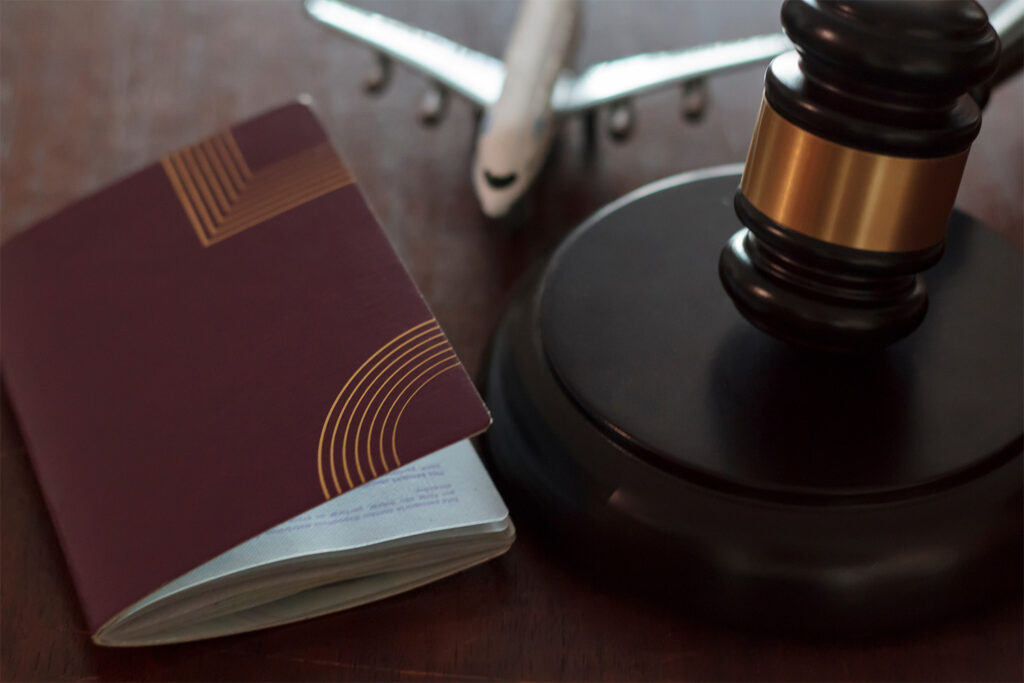Traveling with a pending felony charge can present significant legal challenges and uncertainties that require careful consideration and planning. Individuals facing such circumstances must navigate a complex web of regulations and potential repercussions, which can vary widely depending on the nature of the charge and the jurisdictions involved. Understanding your legal rights and obligations is essential to avoid inadvertently exacerbating your situation. This article aims to provide crucial insights and practical guidance for those contemplating travel while under the cloud of a pending felony. We will explore the potential risks associated with domestic and international travel, the importance of consulting with legal counsel, and the various factors that may influence your ability to travel, including court restrictions and the requirements of your probation or bail conditions. By arming yourself with knowledge and taking proactive steps, you can make informed decisions that safeguard your legal interests while allowing you to pursue necessary travel plans. Whether you are traveling for personal reasons, work obligations, or family matters, understanding the implications of a pending felony charge is vital to navigating this challenging situation effectively.
Understanding Legal Implications of Travel
When considering travel with a pending felony, it is essential to recognize the potential legal consequences that may arise. Many jurisdictions have specific regulations regarding travel restrictions, and these can vary widely depending on the nature of the charges and the location one intends to visit. It is crucial to consult with legal counsel familiar with both your situation and the laws of your destination, as they can provide tailored guidance and help mitigate risks associated with travel.
Additionally, individuals with pending felony charges should be aware of their obligations, such as attendance at court hearings or compliance with bail conditions, which can impact their ability to travel. Failure to adhere to these requirements may result in severe penalties, including the revocation of bail or additional charges. Therefore, obtaining legal advice on traveling with a pending felony not only helps in navigating the practicalities of travel but also ensures that one remains compliant with the legal system, avoiding unnecessary complications.
Essential Documents for Traveling Legally
Traveling legally requires proper documentation, which is particularly critical for individuals facing pending felony charges. Essential documents typically include a valid passport, identification, and any necessary visas, depending on the destination. It’s also advisable to carry documentation related to any legal obligations, such as court dates or conditions of bail, to ensure compliance and preparedness for any inquiries from law enforcement or border control officials during travel.
In addition to standard travel documents, having a copy of legal counsel’s contact information and any court orders related to travel restrictions can be invaluable. This proactive approach not only aids in resolving potential issues that may arise while traveling but also reinforces the importance of being transparent about one’s legal status. Seeking legal advice on traveling with a pending felony ensures that individuals are fully informed about their rights and responsibilities, helping to avoid complications that could jeopardize their legal standing or travel plans.
Strategies to Minimize Legal Risks
To effectively minimize legal risks while traveling with a pending felony, individuals should prioritize thorough preparation and communication with legal counsel. Establishing a clear understanding of the legal landscape in both the home jurisdiction and the destination is crucial. This may involve researching the specific laws and regulations that could impact travel, such as any existing warrants or restrictions that could be enforced at border crossings. Regular consultations with an attorney familiar with local and international travel laws can help navigate potential pitfalls and ensure compliance with any legal obligations.
Additionally, maintaining transparency is key to reducing legal risks. Individuals should consider informing their legal representatives about their travel plans well in advance, so any necessary precautions can be taken. Documenting all communications and keeping a detailed itinerary can further support one’s case, should any legal challenges arise during travel. By taking these proactive measures, individuals can significantly mitigate the potential repercussions associated with traveling while facing pending felony charges, ultimately allowing for a safer and more informed journey.
In conclusion, navigating the complexities of travel with a pending felony requires careful consideration and proactive measures. Individuals in this situation should be aware of the potential legal ramifications and restrictions that may affect their ability to travel, both domestically and internationally. It is crucial to consult with a qualified legal professional who can provide tailored advice based on the specifics of the case and jurisdiction. By understanding the legal landscape and taking appropriate steps, individuals can better prepare for their travels while minimizing the risk of complications. Ultimately, informed decision-making is key to ensuring a smooth journey, despite any legal challenges that may be present.





